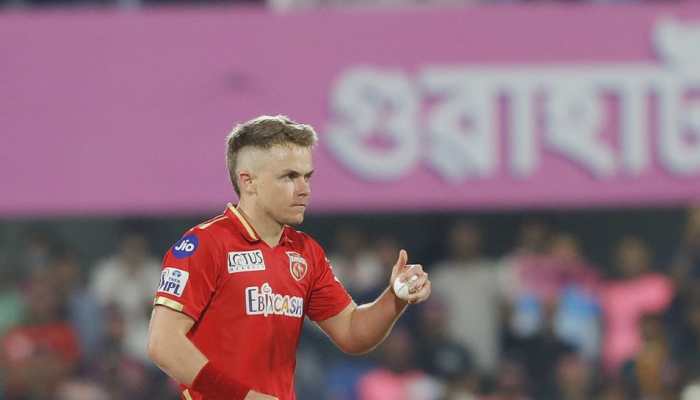Amitabh Bachchan's five decade in B-Town
Today, he is the face of Indian cinema all over the world, and for decades he has been drawing his USP from those very attributes that were considered drawbacks back then.
Trending Photos
)
New Delhi: Amitabh Bachchan's journey of five decades to become the Bollywood "Shahenshah" was not always a smooth ride. Indeed, his life is nothing short of brilliant biopic material. Early rejections were followed by a phase when he made his mark as a promising actor, which was soon overshadowed by the kind of superstardom Bollywood never saw before or after. When the superstar tried his hand at film entrepreneurship, he went bankrupt, only to bounce back and claim supremacy as a super brand and respectability as an icon.
The first reaction of the industry all those years ago, however, was far from welcoming. His tall and lanky frame, and the baritone of his voice were deemed unsuitable for Bollywood's image of a perfect hero back then. These factors were pointed out as flaws, and reasons why he wouldn't be able to make it big in the industry.
Today, he is the face of Indian cinema all over the world, and for decades he has been drawing his USP from those very attributes that were considered drawbacks back then.
"Saat Hindustani", released on November 7 1969, marks the start of his salad phase. The son of celebrated poet Dr Harivansh Rai Bachchan started his journey as one of seven protagonists in the film, which didn't exactly mark a blockbuster debut.
The first time he was seriously noticed was when he essayed a supporting role in Hrishikesh Mukherjee's Rajesh Khanna-starrer "Anand" (1971). Despite the presence of Khanna, the reigning superstar of the times, Bachchan grabbed attention in the role of Dr Bhaskar Banerjee.
Despite getting noticed in "Anand", Bachchan had to see a phase of brief struggle, despite a long list of releases such as a "Parwana", "Reshma Aur Shera", "Sanjog", "Bombay To Goa", "Ek Nazar", "Bansi Birju", "Raaste Kaa Patthar" and "Bandhe Haath".
If his career is to be divided in phases, those early films, which also included "Chupke Chupke" and "Abhimaan", could be termed as the Hrishikesh Mukherjee era. By the time Bachchan was co-starring with Rajesh Khanna in Mukherjee's 1973 release "Namak Haraam", people had already started talking of the tall, dark and brooding actor as the man who would be Bollywood's next king.
It happened the same year, with Prakash Mehra's "Zanjeer". Rooted deep in angst and emotions attached to middle-class India, and delving into complex aspects of human lives, Bollywood's "Angry Young Man" was born in Prakash Mehra's 1973 hit, "Zanjeer".
The film, riding the powerful writing by Salim Khan and Javed Akthar, went on to usher the era of violence and intense drama in Bollywood cinema. As Bachchan began rewriting cinematic trends for the Hindi film industry, Rajesh Khanna's romantic era became history. The Salim-Javed phase of Amitabh Bachchan's career began.
The Salim-Javed scripts that would go on to define Bachchan's Angry Young Man image were "Deewar", "Sholay", "Trishul", "Don", "Kaala Patthar", "Dostana", Shaan" and "Shakti". These films mark the zenith of the actor's superstardom, cementing his permanent position in the industry.
Salim-Javed's intense image for Bachchan was best interpreted by Prakash Mehra ("Zanjeer"), Yash Chopra ("Deewar", "Trishul", "Kaala Patthar"), and Ramesh Sippy ("Sholay", "Shakti").
Bachchan also proved to a peerless comic hero and entertainer in the Manmohan Desai films of the era, notably in "Parvarish", "Suhaag", "Amar Akbar Anthony", "Naseeb" and "Desh Premee".
"Besharam", "Muqaddar Ka Sikandar", "Mr. Natwarlal", "Silsila", "Satte Pe Satta" and "Namak Halaal" were a few other films that highlight his career as Bollywood's biggest commercial phenomenon in the seventies and the eighties.
As he was busy making his mark, he was struck with the accident on the "Coolie" set, but that didn't deter him to lose focus from his goal. The film went on to be a big hit when it released in 1983.
By the time he won his first National Award for "Agneepath" (1990), Big B's popularity was sky-high.
The slowdown started sometime in the mid-nineties, after he launched his company, Amitabh Bachchan Corporation Limited (ABCL). Big B, as he was being hailed by fans the media alike by now, somehow could not take to the world of business with the same effortless brilliance as acting. The failure of his entrepreneurial dreams also affected his box-office performances. Films such as "Mrityudaata", "Sooryavansham", "Major Saab", "Lal Baadshah", and "Kohram" crashed in succession in the mid to late nineties. In David Dhawan's much hyped 1998 Diwali release "Bade Miyan Chote Miyan", fans felt he was overshadowed by Govinda.
Big B needed reinvention, and there started a new phase in his career.
It happened on the small screen, as he took to hosting the quiz show "Kaun Banega Crorepati" in 2000. Entering the living rooms of fans every weekday with a fresh set of questions for contestants, Amitabh Bachchan became a knowledge guru of sorts -- perfectly in sync with his advancing age. The Angry Young Man of yore metamorphosed into the Wise Seasoned Celebrity, and new-age Indian television's biggest phenomenon was born.
Much of what he has done over the past two decades resonates the icon that the KBC phase of Bachchan's superstardom is defined by. The quiz show, after all, helped him find a solid comeback as a big screen phenomenon, defying age and stereotypes.
Creditable projects of this phase include "Mohabbatein", "Kabhi Khushi Kabhie Gham...", "Aankhen", "Kaante", "Baghban", "Khakee", "Black", "Bunty Aur Babli", "Bhoothnath", "Paa", "Bol Bachchan", "Piku", "Wazir", "Te3n", "Pink", "102 Not Out" and "Badla".
He would win three more National Awards during this phase -- for "Black" (2005), "Paa" (2009) and "Piku" (2015). This year he has been declared recipient of Dadasaheb Phalke Award for his contribution to Indian cinema.
Despite being 77, he continues to be one of Bollywood's busiest actors. His upcoming line-up includes "Chehre", "Gulabo Sitabo", "Brahmastra", "Jhund" and "Aankhen 2".
Big B's tryst with honing his craft continues, with the eagerness of a newcomer -- as is visible in every new film. Perhaps that is the secret of his excellence and survival.
Stay informed on all the latest news, real-time breaking news updates, and follow all the important headlines in india news and world News on Zee News.
Live Tv







)
)
)
)
)
)
)
)
)
)
